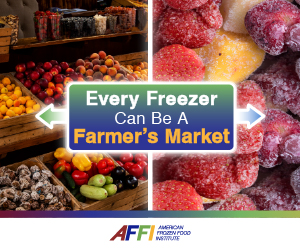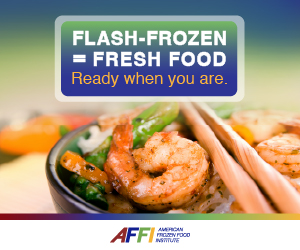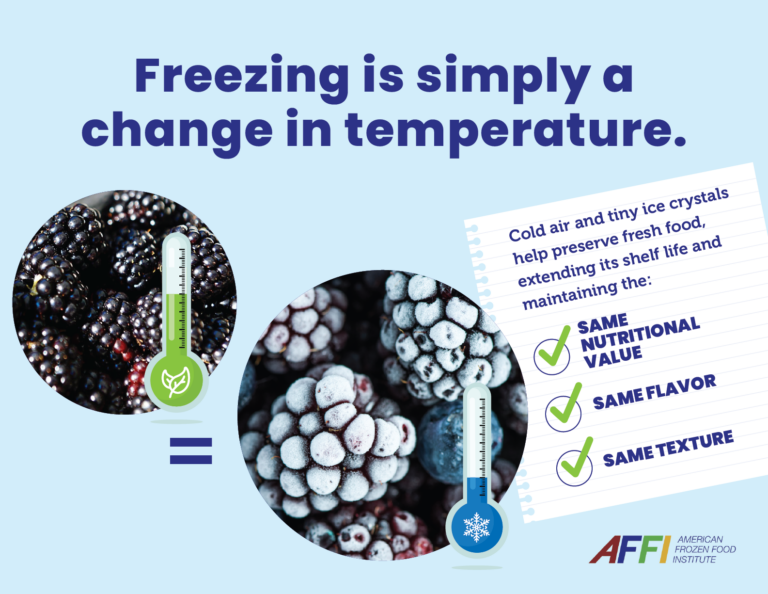Frozen Food Facts
We rounded up the most common and persistent myths about frozen foods. Read on to find out the real deal!
Myth:
Frozen fruits and veggies aren't as nutritious as fresh.
Fact:
Recent studies found that there is no difference in nutrition between frozen produce and fresh produce and, in some cases, frozen can be higher in nutrients than fresh-stored produce.
Myth:
Frozen meals don't use real ingredients.
Fact:
The freezer aisle of your supermarket is filled with meals made with the highest quality ingredients and prepared the way you would (if you had the time).

Myth:
Frozen foods are ready to eat.
Fact:
Frozen foods include on-package cooking instructions for quality and safety. Be sure to follow the cooking directions to keep you and your family safe and to ensure the best tasting food.

Myth:
Frozen meals aren't environmentally friendly.
Fact:
Actually, frozen foods minimize the amount of spoiled food we throw away because they’re already portioned out for us, so we can take what we need and save the rest for later use.
Myth:
All frozen foods contain added preservatives.
Fact:
Freezing is a natural form of preservation, so added preservatives aren’t necessary to preserve frozen food.
Myth:
Frozen meals aren't a good choice for health-conscious consumers.
Fact:
“Better-for-you” options are available in the frozen food aisle to make it easier for consumers to control intakes of calories, fat, saturated fat and sodium.
Myth:
Freezing is a form of heavy processing that changes food.
Fact:
Freezing is a temperature change, not a transformation. It keeps food closer to its original state — same calories, same macros, locked in at peak freshness.
Myth:
Fresh produce is always more nutritious than frozen
Fact:
Fruits and vegetables are flash-frozen within hours of harvest, so their nutrition doesn’t degrade as they travel across the country. Ninety-four percent of registered dietitian nutritionists agree frozen produce is as nutritious as fresh.
Myth:
Buying frozen doesn't really save money.
Fact:
Every frozen purchase protects your investment in food. Americans could save $1,500/year by eliminating food waste, and 8 in 10 agree frozen helps them waste less.




